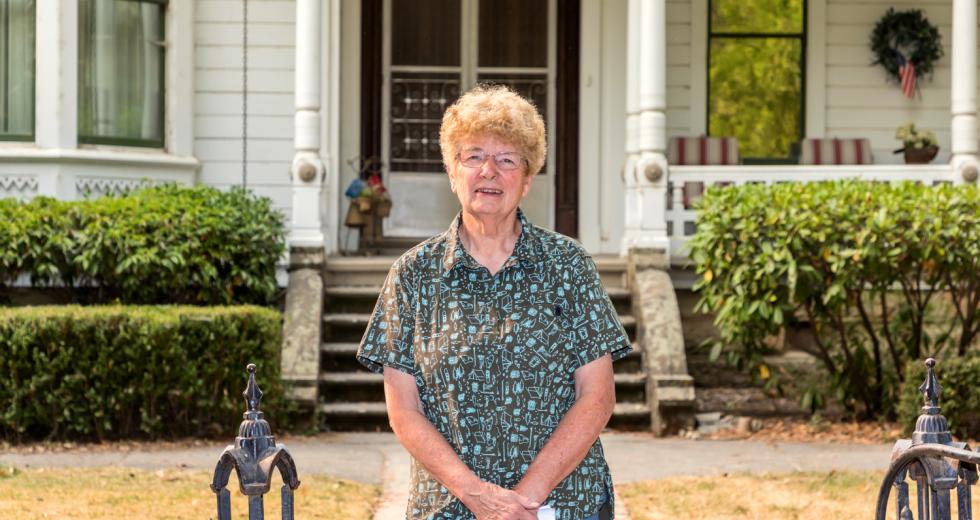As the LNU Lightning Complex fire roared through Vacaville in mid-August, it killed five people, destroyed nearly 1,500 structures and burned artifacts from the area’s history. But Ethel Hoskins is determined that her family ranch’s legacy will endure despite the significant damage to the property where she still lives.
Ethel Hoskins loaded her two dogs in her car and drove to a
friend’s house when the LNU Lightning Complex fire threatened her
homestead, Joy Ranch, Aug. 18. A day later, a neighbor told her
the house was gone. Then she received a text message from a
tenant in her house that said the structure was still standing.
“How this house stood, made out of redwood versus brick or
something (else), is pretty incredible,” she says.
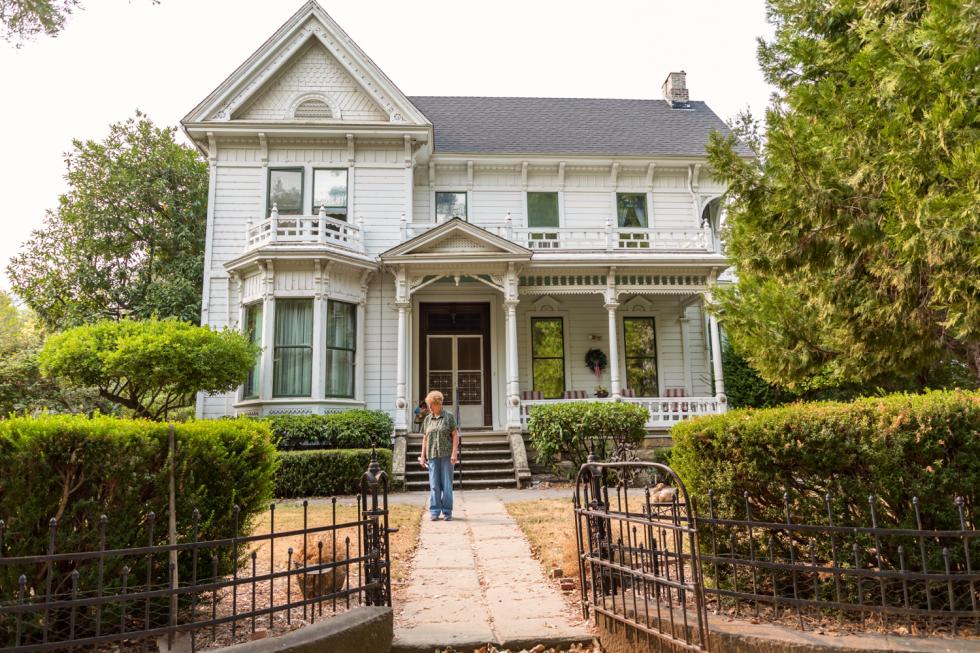
Hoskins’ grandfather, William James Pleasants, settled on this land in 1850 and eventually farmed approximately 4,000 acres. The road that snakes through 13 miles of farmland — north from Putah Creek down to Vacaville — still bears the family name, Pleasants Valley Road.
The fire stopped about 30 feet from the front sidewalk to the
house. Flames skipped through the olive trees, reducing one
picnic table to ashes, while leaving the others intact.
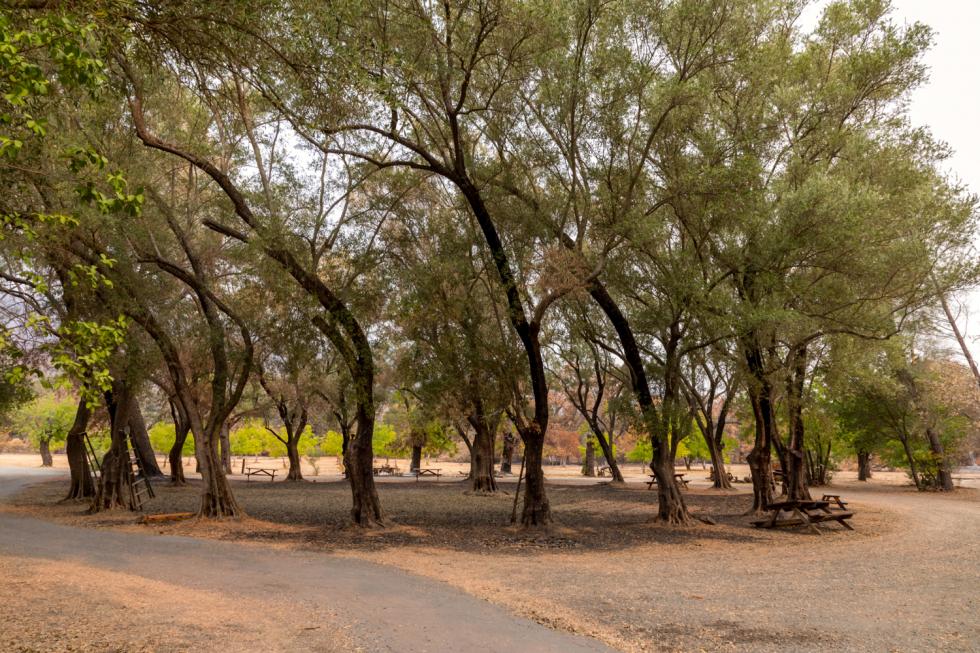
In 1849, Pleasants and his father traveled from Kentucky to California by wagon train, settling near Oroville to mine for gold. When they tired of the tough miner’s life, they headed south, meeting Jerome Davis — future founder of the city of Davis — who advised them to keep heading west.
Ethel Hoskins surveys the damage near the olive trees on her
property, which she now calls “the sad place,” where buildings
and artifacts have been reduced to rubble.
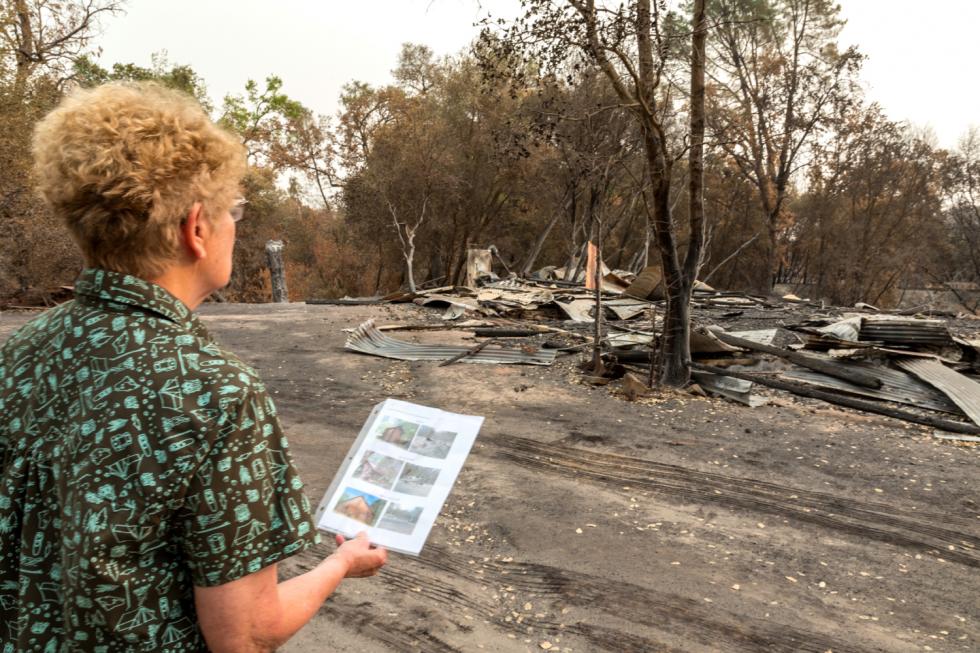
“They landed here in what we now call Pleasants Valley in December of 1850,” Hoskins says. At first, the men raised wheat and barley, but before long, they became one of the first stone fruit growers in the state, she says. There’s also a history of cattle on the ranch — a practice that continues today.
Stones from the foundation peek through the rubble of the old
horse barn, which was used for meetings and events.
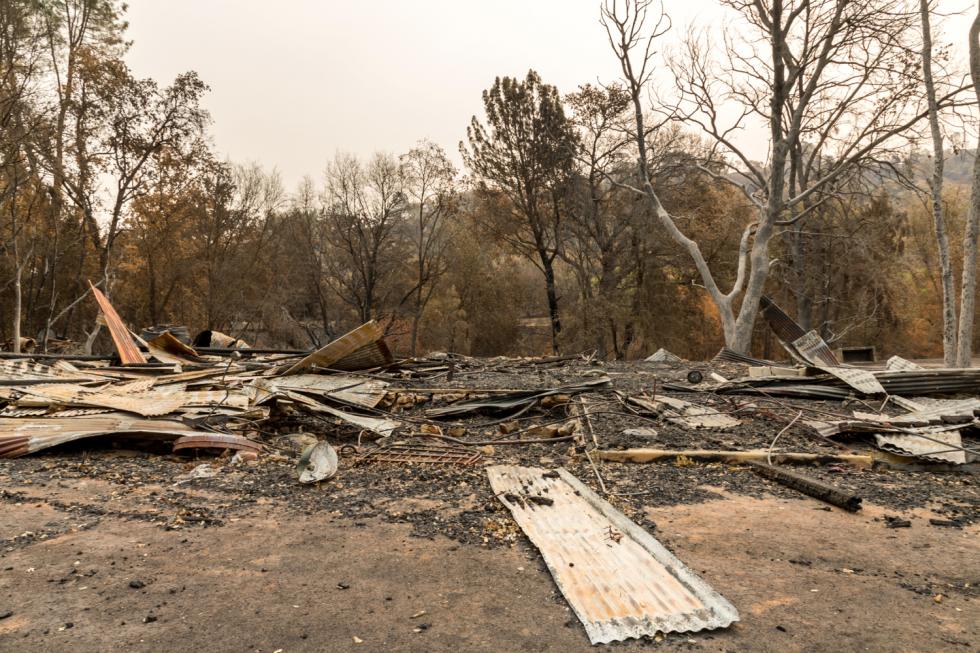
Hoskins lives and works on the remaining 400 acres that she owns and calls Joyful Ranch (over the years, the land was parceled out to other heirs). Working with Solano Land Trust, Hoskins established the Joyful Ranch Foundation, a nonprofit that both rents and donates the use of its facilities to various groups “to provide the public with information about the rich history of the ranch and to provide a place for spiritual renewal.”
Ethel Hoskins walks to where her grandfather’s buggy barn once
stood.
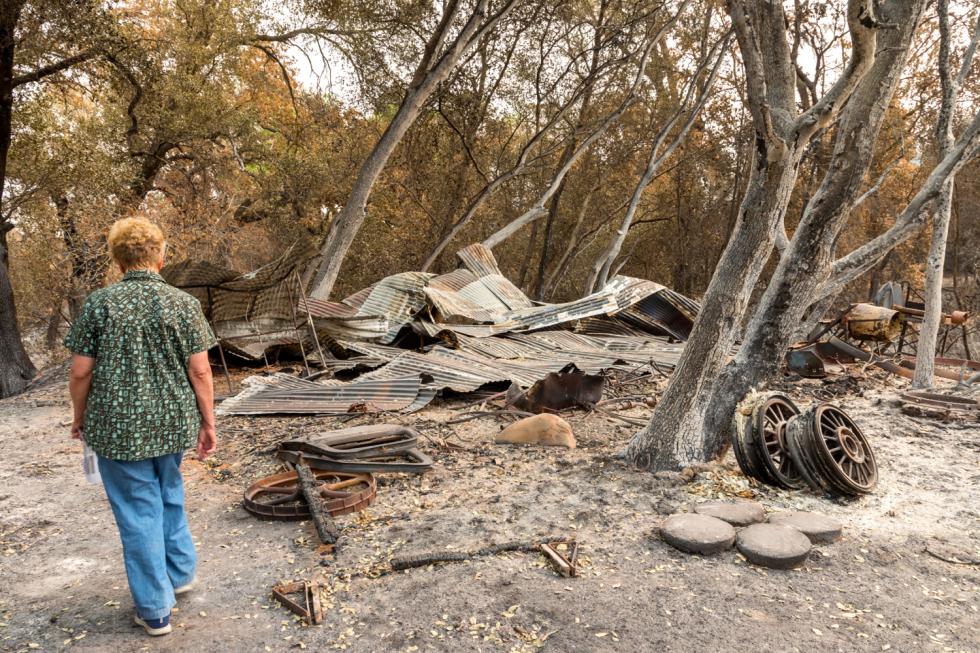
Hoskins has lived her entire life on this land. She’s seen fires before. “The way fires run here is that fires have a personality of their own. Most will go north to south, top of the hill down, so you know when the fire is coming: It’s going to come north to south and top down. This one didn’t. … From what I hear from a fireman, it was the fastest, hottest, most erratic fire they had ever seen.”
Behind the farmhouse, the fire came close to the chicken coop and
barns. One chicken died and 10 survived, and other wildlife,
including deer and turkeys also survived.
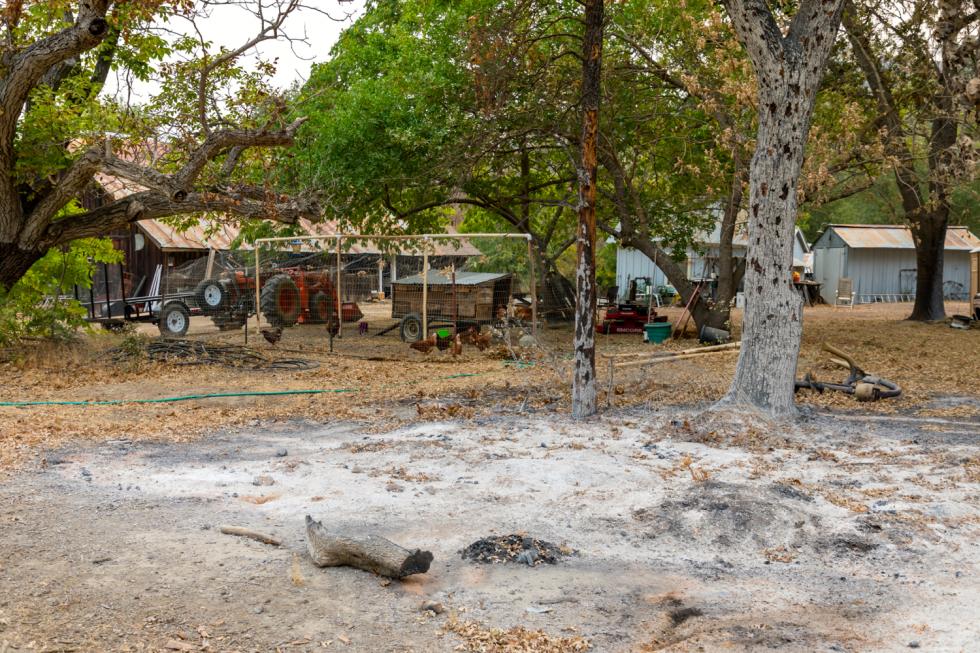
Her walnut orchards were “pretty thrashed from the fire,” but her cattle survived. The fire destroyed our buildings that were on the National Register of Historic Places, but the house built with redwood still stands.
The fire was so hot that the glass windshield melted on an old
pickup truck.
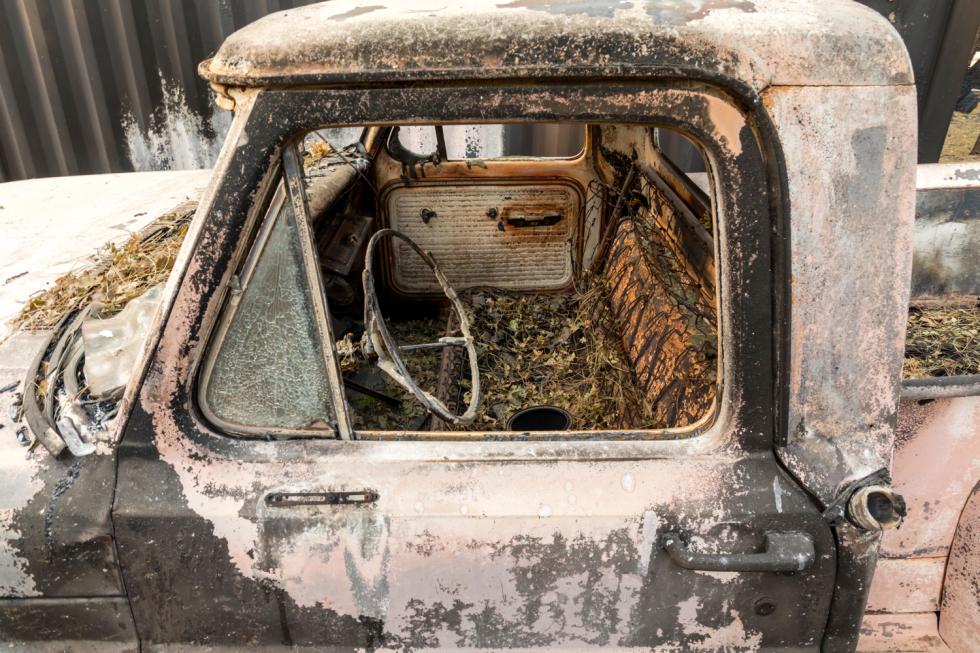
As for future fires, she says she doesn’t know what she could do to better prepare. “With this kind of fire, I’m not sure what you could do. I know some stayed back and fought. I’ve heard some horror stories of those who stayed back. They’re fine, but wow, that fire blew up.”
Burn scars mark the back pasture. Cattle that would have been
grazing here had been moved to Susanville two months before the
LNU Lightning Complex fire, when another fire threatened the
area.
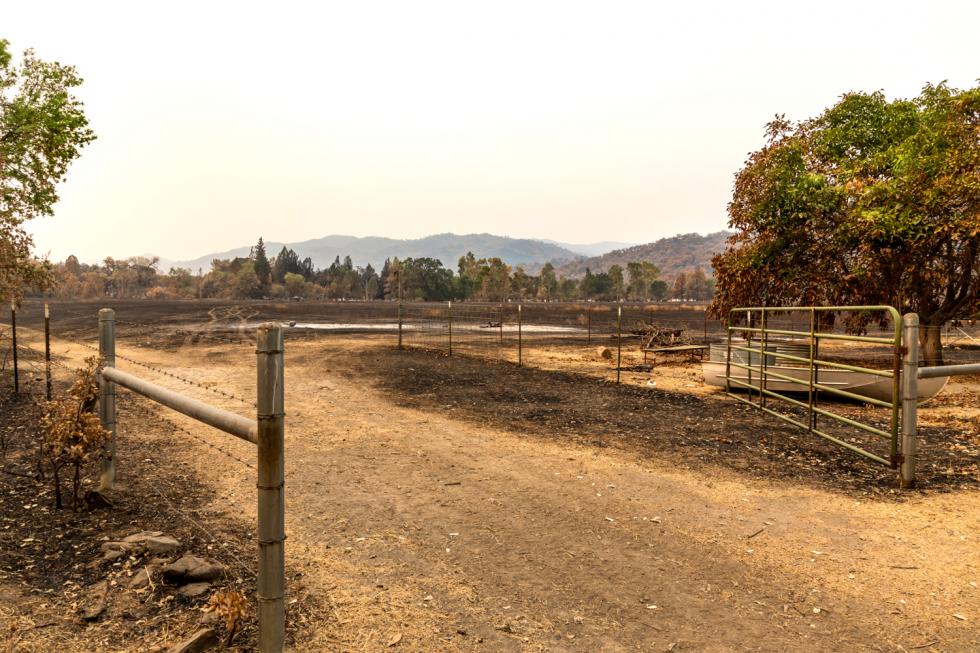
–
Stay up to date on current events affecting business in the Capital Region: Subscribe to the Comstock’s newsletter today.
Recommended For You
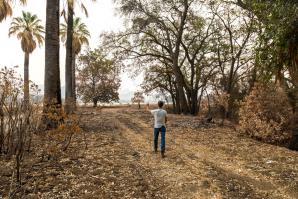
‘The Bees Will Fly Again’
Beekeeper Clay Ford on how his Vacaville-based business has fared following the LNU Lightning Complex fire
Comstock’s spoke to Ford about the impact of the fire on his beekeeping business and how he believes, “The bees will fly again.”
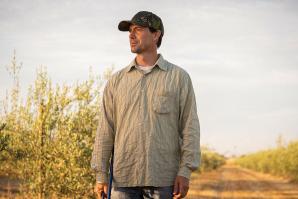
Fields of Gold
The Sacramento Valley’s climate is ripe for producing quality olive oil
Olive farmers in California are determined to become known as producers of high-quality olive oil, and much of that olive oil is being produced in the Mediterranean climate of the Sacramento Valley.
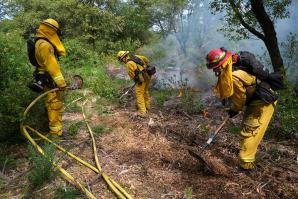
Beating the Burn
California’s plan to deal with deadly and devastating wildfires — including controlled burns, thinning and a restoration economy — is ambitious; is the state up to the task?
Past approaches to forest fires have been a misinformed regime of fire suppression: extinguishing all flames quickly. Now California’s forests are overgrown tinderboxes-in-waiting; the approach is changing, but there’s a lot of work to do.
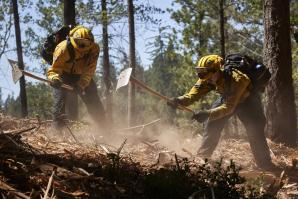
Photos: Cal Fire Trains New Crews in Auburn
The inmate fire crews used by the California Department of Forestry and Fire Protection have been depleted due to the pandemic, so the agency is training new firefighters.



